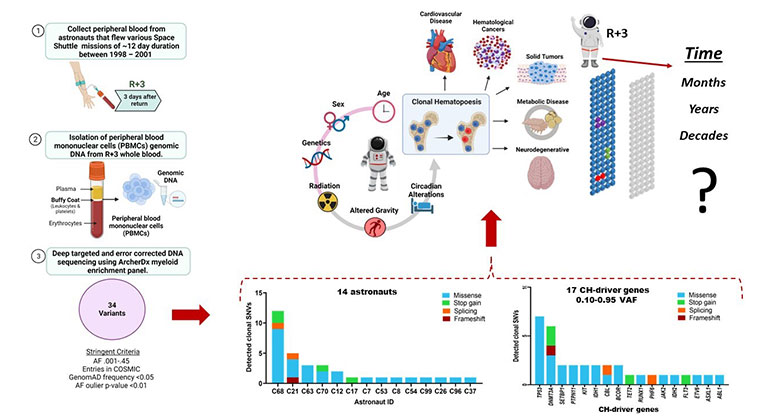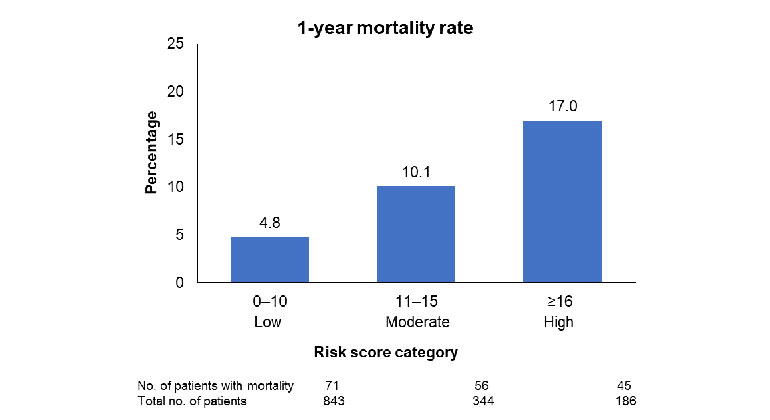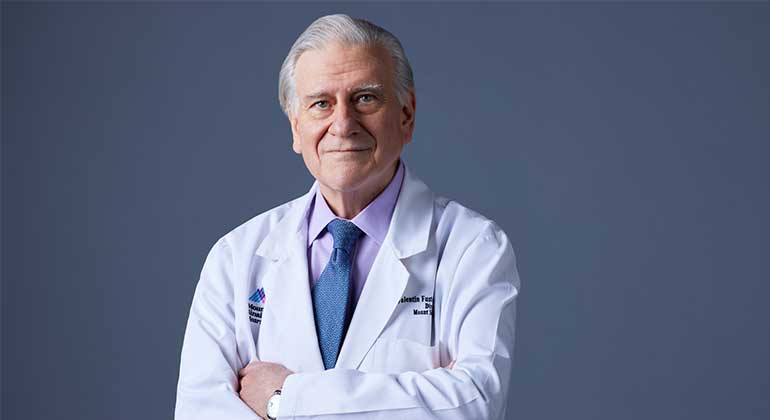Fondation Leducq Awards $6 Million Grant for Global Research Network for Cardiac Regeneration
New Transatlantic Network of Excellence in Cardiovascular Research Established with the Cardiovascular Research Center at Icahn School of Medicine at Mount Sinai.
The Fondation Leducq in Paris, France, dedicated to improving human health through international efforts to combat cardiovascular disease, awarded a $6 million grant award to a new global research network of cardiovascular scientists which includes three researchers from the Cardiovascular Research Center at Icahn School of Medicine at Mount Sinai.
This new large grant was awarded as part of the Fondation Leducq's Transatlantic Networks of Excellence in Cardiovascular Research Program. Network researchers will aim to identify cellular and molecular targets to help advance cardiac regeneration therapeutics. Their research proposal was one of only four research projects selected this year for funding by the foundation from among one hundred applications. Research is planned to launch in January 2014.
The new global network brings together physician-scientists with leading expertise in developmental biology, cardiac stem cell biology, biomarkers, gene therapy, metabolism, immunology, pharmacogenomics, and clinical cardiology.
The new research network includes Mount Sinai's Roger Hajjar, MD, Director of the Cardiovascular Research Center at Mount Sinai, Jean-Sebastien Hulot, MD, PhD, Director of Pharmacogenomics and Personalized Therapeutics at the Cardiovascular Research Center at Mount Sinai, and Jason Kovacic, MD, PhD, Assistant Professor of Medicine in Cardiology at Mount Sinai. Other network members include: Toren Finkel, MD, PhD, of the National Institutes of Health, the North American Coordinator; David Sassoon, PhD, of the Universite de Pierre et Marie Curie-Sorbonne Universites in Paris, France, the European Coordinator; Thomas Braun, MD, PhD, of Max Planck Institute for Heart and Lung Research, Bad Nauheim, Germany; Richard Harvey, PhD, of Victor Chang Cardiac Research Institute, Sydney, Australia; Nadia Rosenthal, PhD, of the National Heart and Lung Institute, Imperial College in London, UK; and Mark Sussman, PhD, of San Diego State University, SDSU Heart Institute, in San Diego, CA.
"Working together, our research network has the extraordinary opportunity to investigate novel methods for cardiac regeneration to repair injured hearts," says Dr. Hajjar, who also serves as the Arthur & Janet C. Ross Professor of Medicine and Professor of Gene & Cell at Mount Sinai. "Our ultimate mission is to advance this emerging translational medicine field with discovery and the rapid translation of novel cardiac regenerative therapies from the laboratory bench to the patient's clinic for testing in innovative clinical trials."
Currently, there is no scientific consensus on what process governs or restricts cardiac regeneration. The research network hopes to gain a greater comprehensive understanding of the roles played by cardiac stem cells, heart muscle cells known as cardiomyocytes, and other cardiac cell types that regulate cardiac regeneration to assess their potential capabilities to assist in the revival and regeneration of a damaged heart and its tissues for patients diagnosed with impaired cardiac function or structural damage.
As of 2013, Fondation Leducq has supported 39 research networks, more than 360 investigators at 123 institutions in 18 countries. The Fondation Leducq was created in 1996 by Jean and Sylviane Leducq to support collaborative work between investigators in North America and Europe. The Transatlantic Networks of Excellence Research Program was launched in 2003.
The Cardiovascular Research Center at Mount Sinai directed by Dr. Hajjar was founded in 2007. It conducts cross-disciplinary basic and translational cardiovascular research to prevent and reverse heart disease, heart failure, and atherosclerosis which is the hardening of the heart's arteries due to plaque buildup — a leading cause of heart attack, stroke, and peripheral vascular disease. The Center's research investigations focus on cardiovascular disease, heart failure, vascular disease, heart valve problems, and ventricular dysfunction.
"Cardiovascular disease is the leading cause of death around the world. New global research alliances like ours, thanks to the generous support of the Fondation Leducq, will truly accelerate the development of more refined therapies to ease the wide-reaching burden of cardiovascular disease," says Dr. Hajjar.
About The Mount Sinai Medical Center
The Mount Sinai Medical Center encompasses both The Mount Sinai Hospital and Icahn School of Medicine at Mount Sinai. Established in 1968, the Icahn School of Medicine at Mount Sinai is one of the leading medical schools in the United States. The Icahn School of Medicine is noted for innovation in education, biomedical research, clinical care delivery, and local and global community service. It has more than 3,400 faculty members in 32 departments and 14 research institutes, and ranks among the top 20 medical schools both in National Institutes of Health (NIH) funding and by U.S. News & World Report.
The Mount Sinai Hospital, founded in 1852, is a 1,171-bed tertiary- and quaternary-care teaching facility and one of the nation's oldest, largest and most-respected voluntary hospitals. In 2012, U.S. News & World Report ranked The Mount Sinai Hospital 14th on its elite Honor Roll of the nation's top hospitals based on reputation, safety, and other patient-care factors. Mount Sinai is one of just 12 integrated academic medical centers whose medical school ranks among the top 20 in NIH funding and by U.S. News & World Report and whose hospital is on the U.S. News & World Report Honor Roll. Nearly 60,000 people were treated at Mount Sinai as inpatients last year, and approximately 560,000 outpatient visits took place.
For more information, visit http://www.mountsinai.org.
Find Mount Sinai on:
Facebook: http://www.facebook.com/mountsinainyc
Twitter @mountsinainyc
YouTube: http://www.youtube.com/mountsinainy
About the Mount Sinai Health System
Mount Sinai Health System is one of the largest academic medical systems in the New York metro area, with more than 43,000 employees working across eight hospitals, over 400 outpatient practices, nearly 300 labs, a school of nursing, and a leading school of medicine and graduate education. Mount Sinai advances health for all people, everywhere, by taking on the most complex health care challenges of our time — discovering and applying new scientific learning and knowledge; developing safer, more effective treatments; educating the next generation of medical leaders and innovators; and supporting local communities by delivering high-quality care to all who need it.
Through the integration of its hospitals, labs, and schools, Mount Sinai offers comprehensive health care solutions from birth through geriatrics, leveraging innovative approaches such as artificial intelligence and informatics while keeping patients’ medical and emotional needs at the center of all treatment. The Health System includes approximately 7,300 primary and specialty care physicians; 13 joint-venture outpatient surgery centers throughout the five boroughs of New York City, Westchester, Long Island, and Florida; and more than 30 affiliated community health centers. We are consistently ranked by U.S. News & World Report's Best Hospitals, receiving high "Honor Roll" status, and are highly ranked: No. 1 in Geriatrics and top 20 in Cardiology/Heart Surgery, Diabetes/Endocrinology, Gastroenterology/GI Surgery, Neurology/Neurosurgery, Orthopedics, Pulmonology/Lung Surgery, Rehabilitation, and Urology. New York Eye and Ear Infirmary of Mount Sinai is ranked No. 12 in Ophthalmology. U.S. News & World Report’s “Best Children’s Hospitals” ranks Mount Sinai Kravis Children's Hospital among the country’s best in several pediatric specialties.
For more information, visit https://www.mountsinai.org or find Mount Sinai on Facebook, Twitter and YouTube.
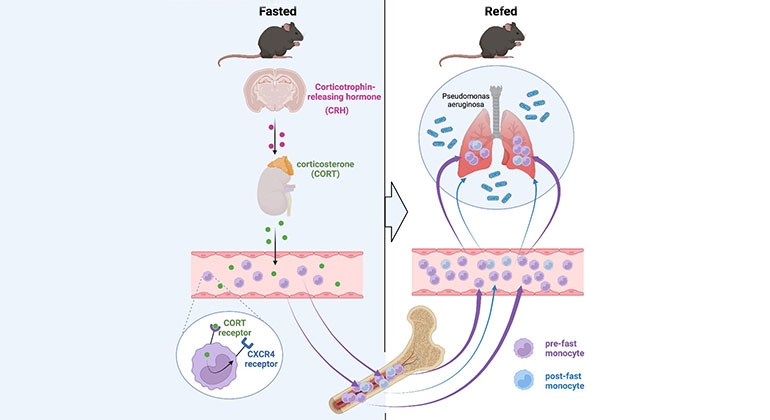
Skipping Breakfast May Compromise the Immune System
Feb 23, 2023 View All Press Releases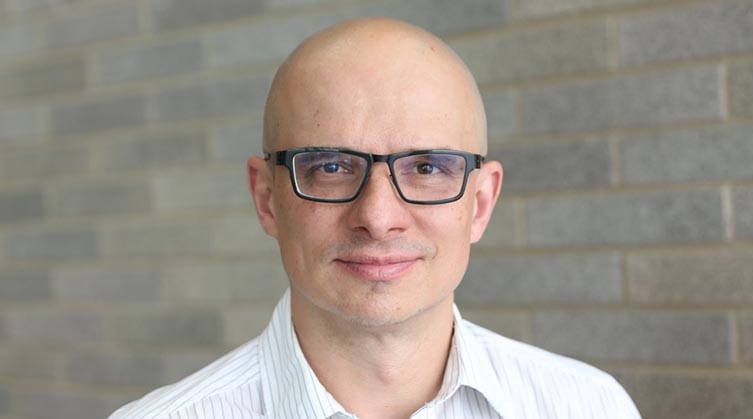
Mount Sinai Recruits Internationally Recognized Cardiovascular Immunology Researcher
Jul 21, 2021 View All Press Releases
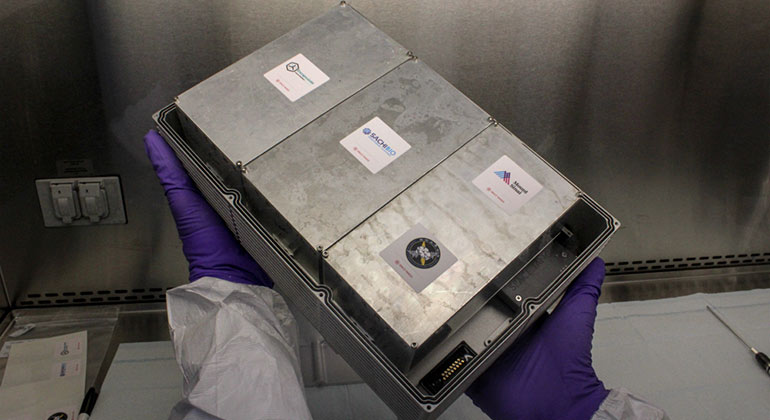
.jpg)
